Table of contents
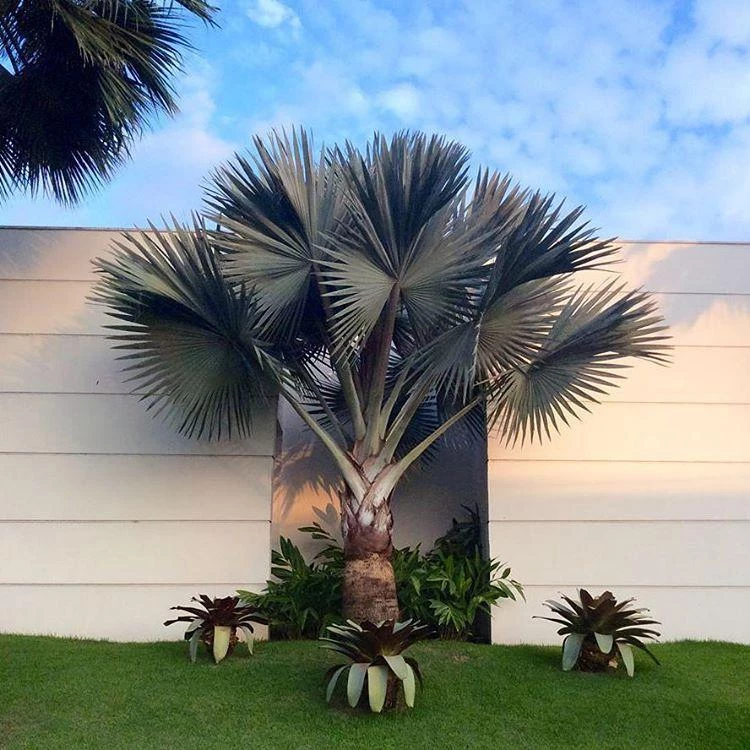
Blue Palm is the popular name of a plant scientifically named Bismarckia nobilis. This plant is native to the Madagascar region in Africa, and received its name thanks to the slightly bluish coloration of its leaves. In addition, it is well known for the fan-shaped foliage.
The blue palm seedlings can be planted in pots or directly in the ground and cost around R$ 50.00. When planted in the ground, they usually reach 12 meters in height, but can reach up to 25 meters.
See_also: Wooden benches: functionality and style for any environmentThe blue palm is a plant that is adapted to wet and dry climates and can be resistant to frost and fire. The life cycle of this plant is called perennial, which means that it lives for more than two years and its leaves are permanent.
With its exuberant beauty, the blue palm tree appears in many landscaping projects and is increasingly present in gardens. It easily becomes a highlight in the landscape, as it draws attention and has an impactful effect.
How to care for blue palm trees
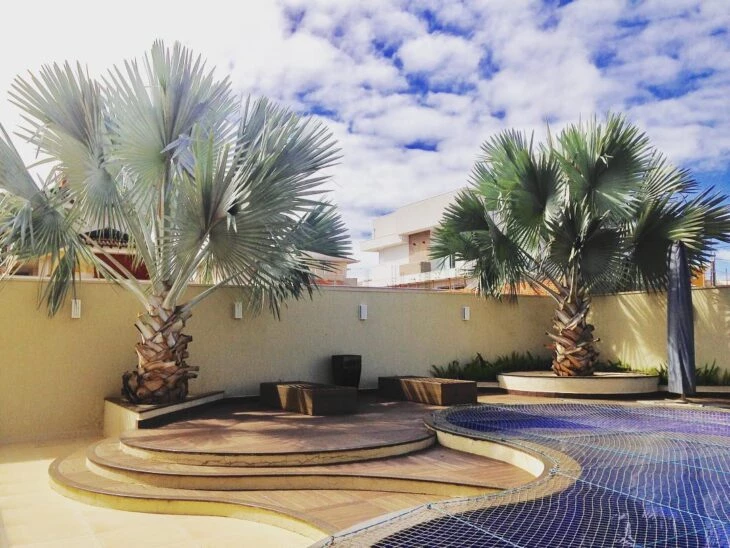
Blue palms can be planted and grown in both warm and cooler places, but these plants need incidence of sunlight to grow beautifully and healthily.
The soil in which the seedlings will be planted needs to have good drainage and good nutrients to support their growth. This can be achieved with compost and organic fertilizers mixed with sand.
They don't need much elaborate care, just be sure to water them often and sparingly, without letting the soil get soaked. Depending on the climate and the region you live in, rainwater may be sufficient, but remember that these plants will grow better and faster when well watered.
How to make seedlings
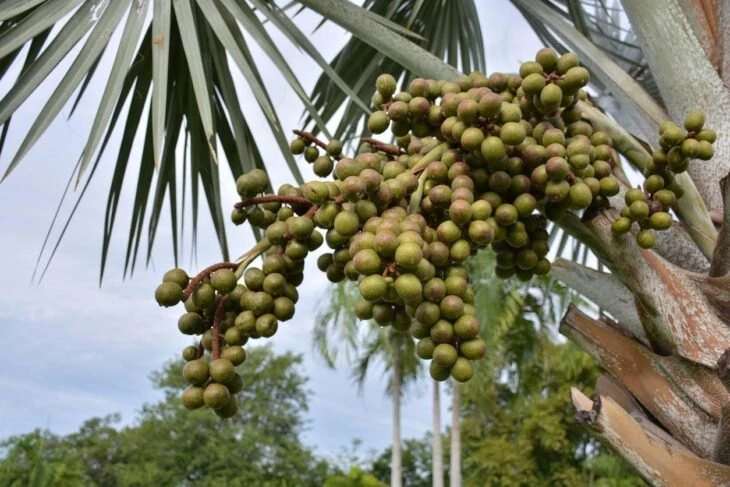
To make blue palm seedlings, it is necessary to harvest the fruits of the plant. They must be manually pulped, washed, and placed under paper towels, and then sown.
There are two ways to perform the sowing. The first one is done in containers with a mixture of sand, worm humus and organic compost. The seeds of the fruit must be lightly covered with the mixture so that the germination begins in about three months, it may take a little less or a little more. When the leaves begin to grow, the roots can be placed in potsor planted directly into the ground.
The other way to sow the blue palm is to put several seeds into a plastic bag with sand and organic compost and moisten this mixture. Keep an eye on the plastic bag until the plants start to germinate. When this happens you can separate the seeds and plant them.
Remember to always keep the seedlings in a shaded place while they germinate, regardless of which way you choose to sow the blue palm.
How to restore a blue palm tree
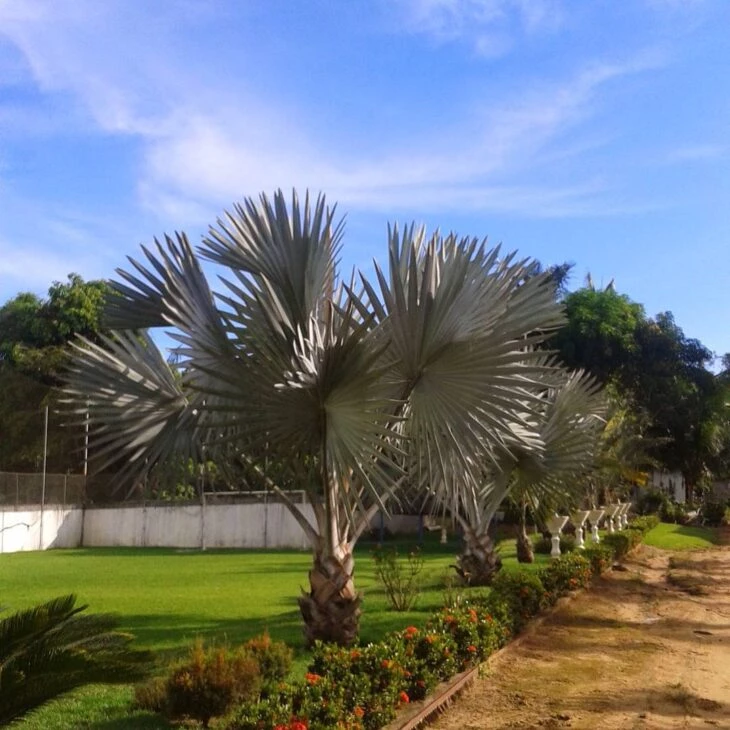
The blue palm tree needs a semi-hard soil to grow, so when there is excess water in the soil, the plant can die. If you have noticed that your blue palm tree is dying, you will need to follow some instructions to save it.
First, dig around the plant and carefully pull it out of the ground. Look for any rotten, black or gray roots, and if so, cut them out. Then leave the plant in direct sunlight for about two hours so that the sun can dry the rest of its roots.
After that, prepare the place where the palm tree will be replanted again, by putting necessary nutrients through an organic compost, for example.
How to use the blue palm tree in the landscaping project
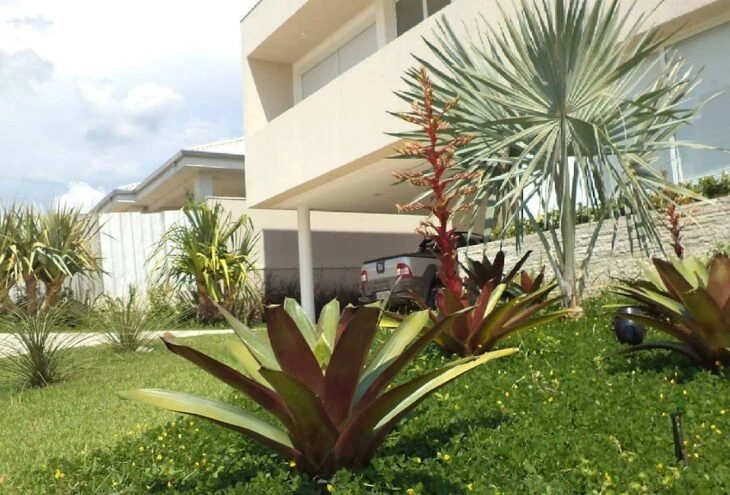
The blue palm is a great plant to use in landscaping projects, especially when there is enough space for its leaves to grow. It is usually used as the focal point of the project, so avoid combining it with plants that may compete with the palm, preventing the desired visual effect.
The goal is to plant the blue palm in an open lawn and fill in the surroundings with small plants. The lisimachia, rattails, and cigarette-aceso are low, colorful, and have a lot of personality that can contribute to a nice landscaping project.
See_also: Vegetable garden in apartment: how to do it, what to plant, step by step and photosYou can also use blue creeping flowers to match the palm tree, such as blue vinca or blue lobelia. These flowers will intensify the bluish color of the blue palm leaves.
25 charming gardens thanks to the blue palm
The blue palm is a plant that can bring prominence to your garden, so check out 25 environments that have become charming thanks to blue palms and use them for inspiration to think about planting in yours.
1. the blue palm tree can bring personality to your garden
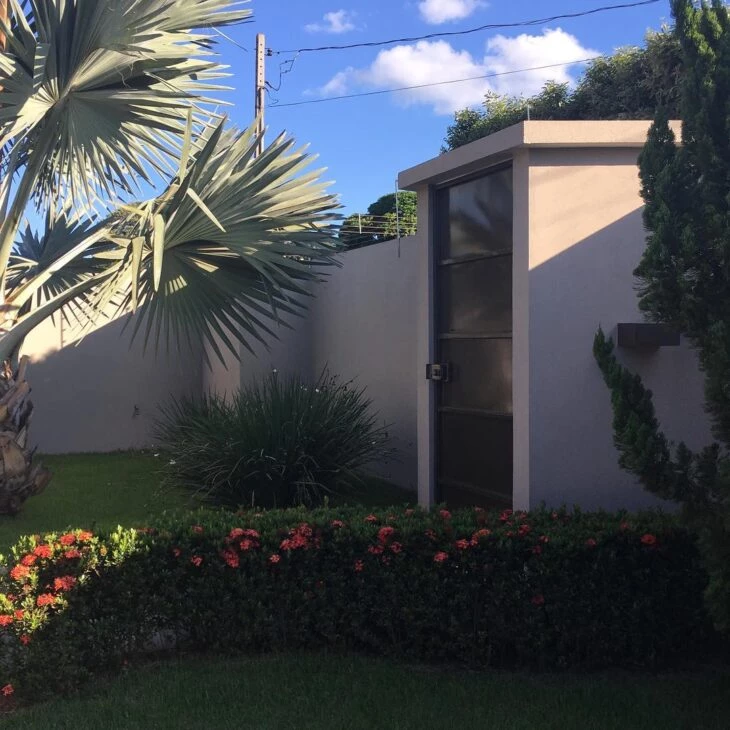
2. it can be planted next to other plants
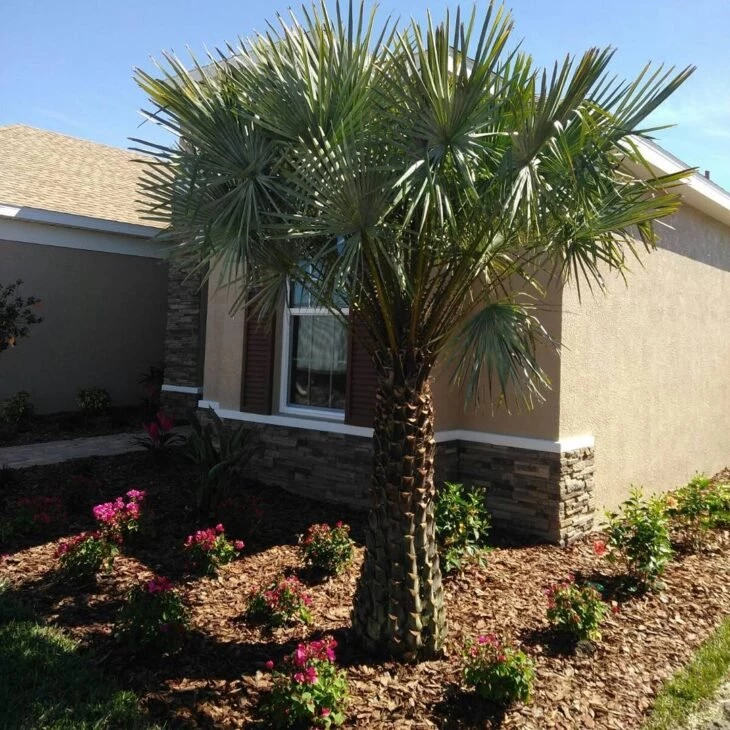
3. as in this garden, where there is a great diversity of leaves
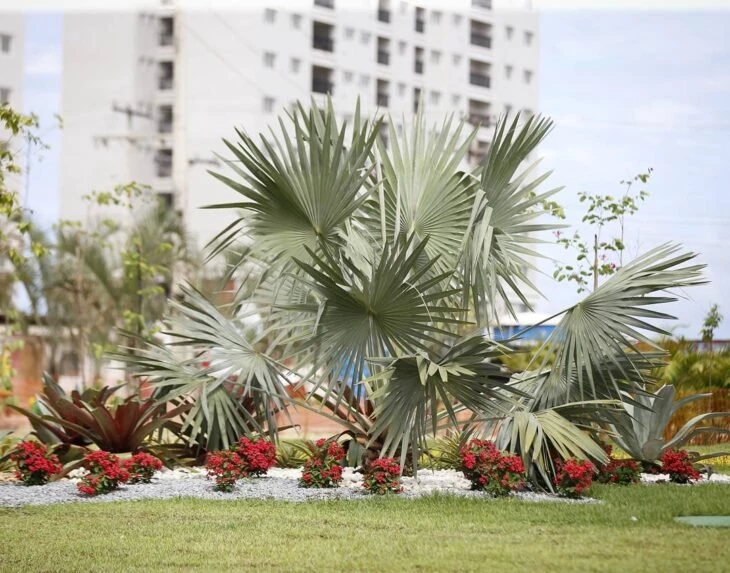
4. can be combined with other types of palm trees as well
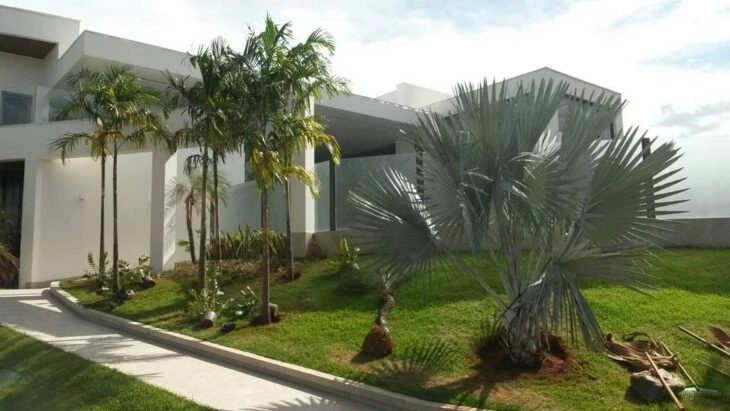
5. you can suspend an orchid in the blue palm tree!
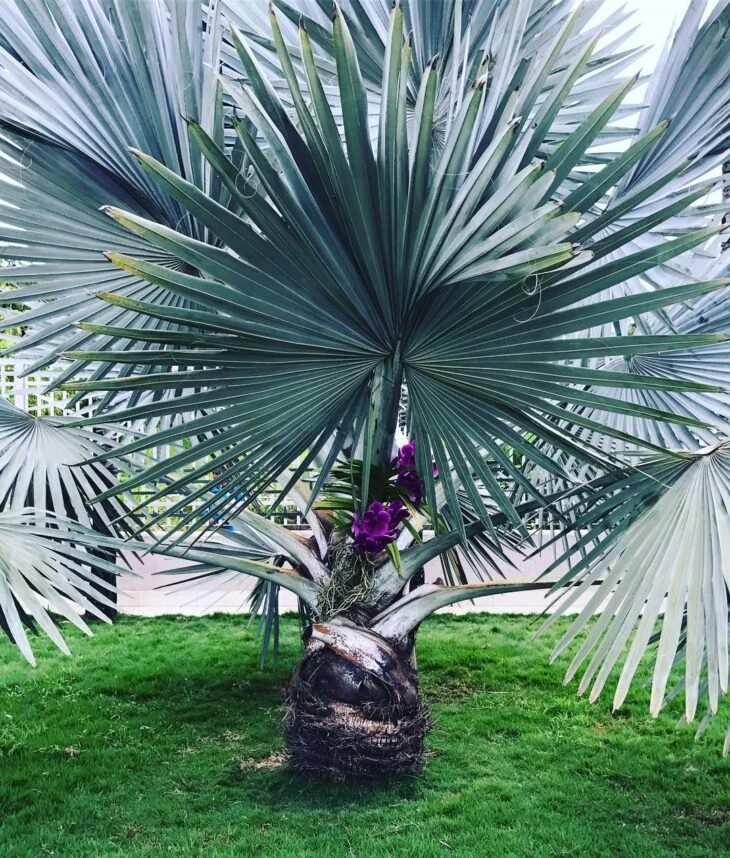
6. this plant can be of large size
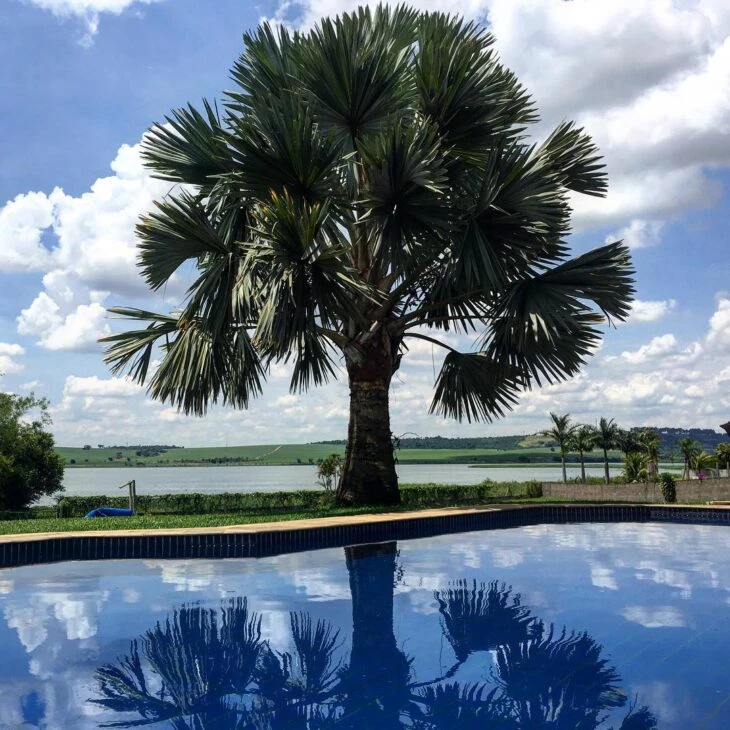
7. or small size!
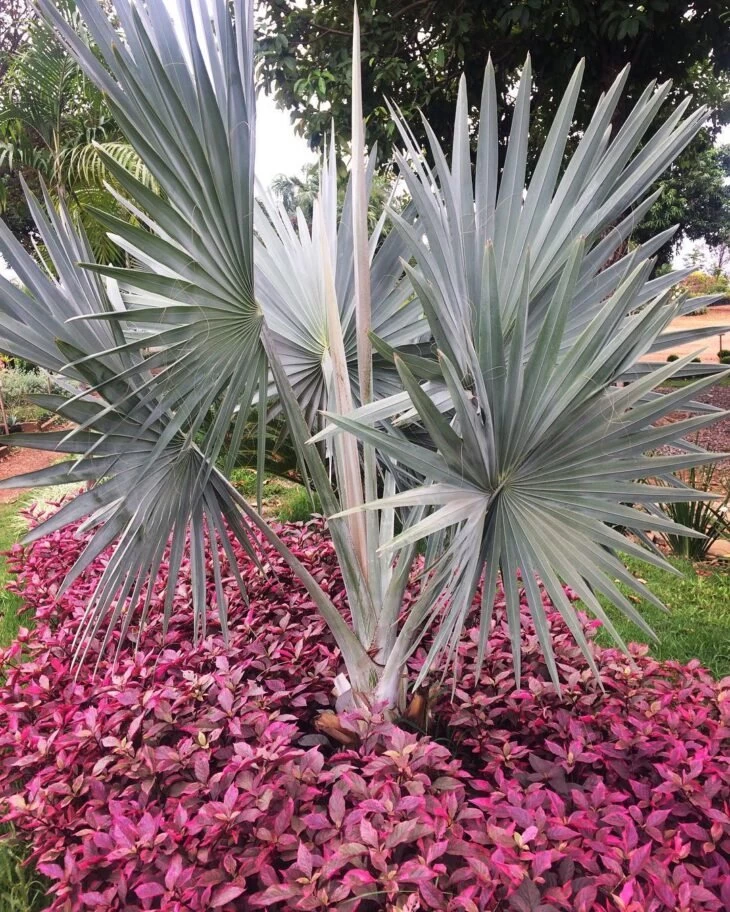
8. the blue palm tree can decorate the facade of your house
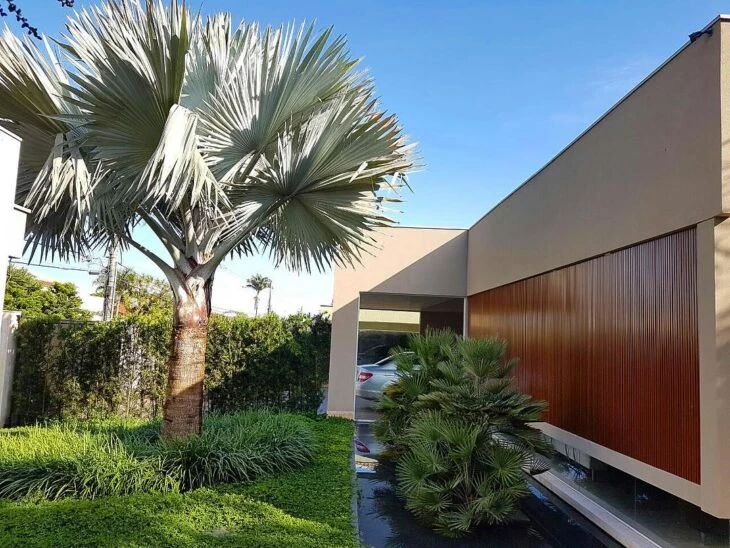
9. or you can also decorate the background
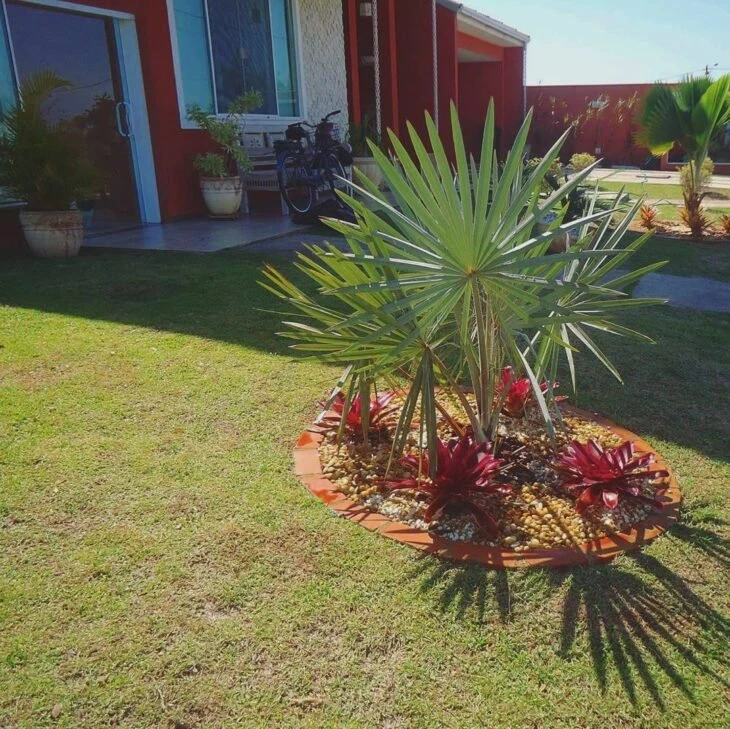
Place pebbles to decorate around the palm tree
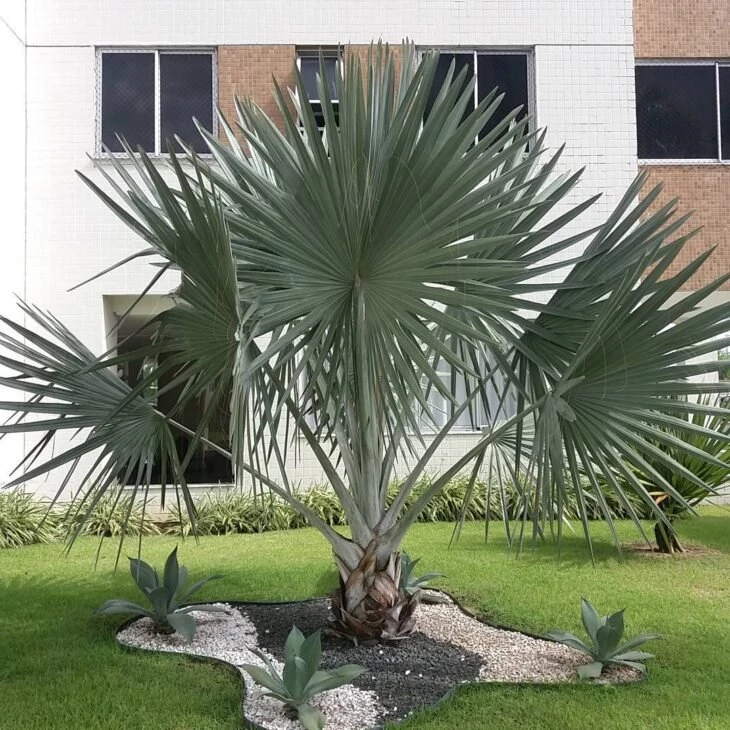
11. use the blue palm as the focal point of your garden
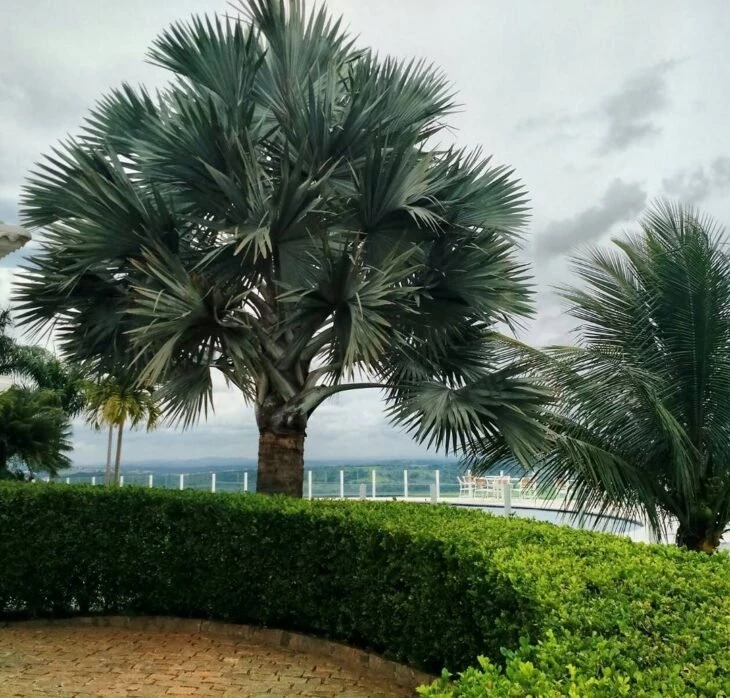
12. in this garden, a bed of iresines was planted around the palm tree
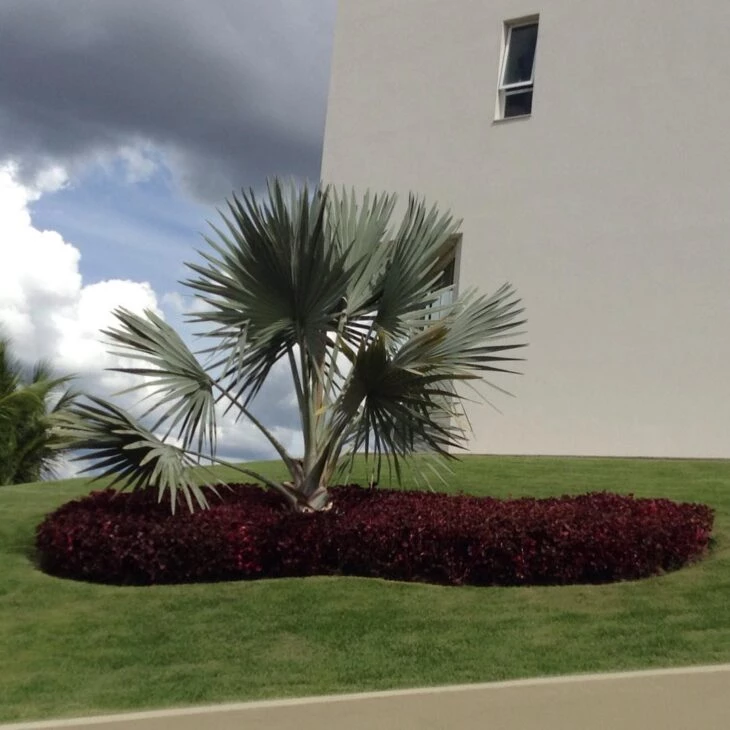
13. blue palm blends in with modern gardens
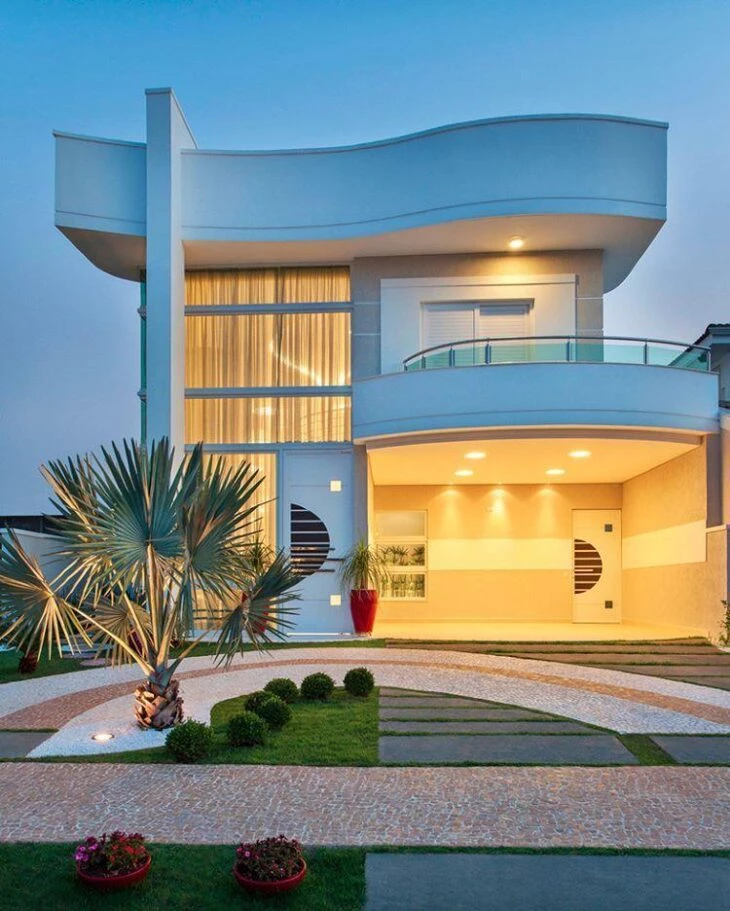
14. this plant fits very well in large tropical gardens as well
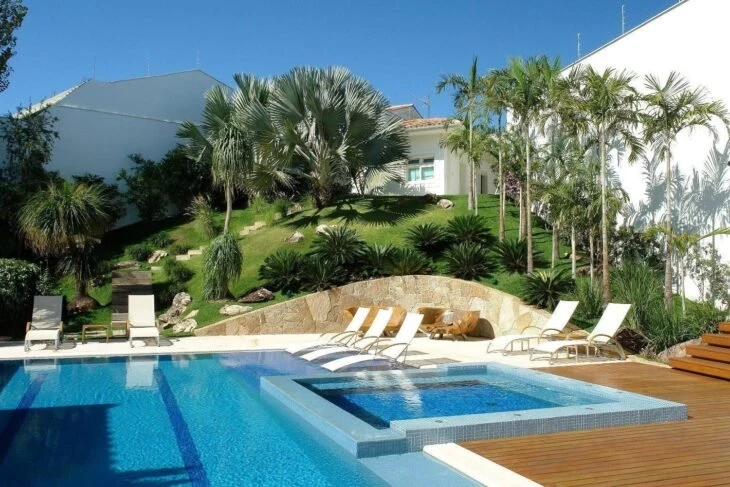
15. you can plant a blue palm tree near the pool
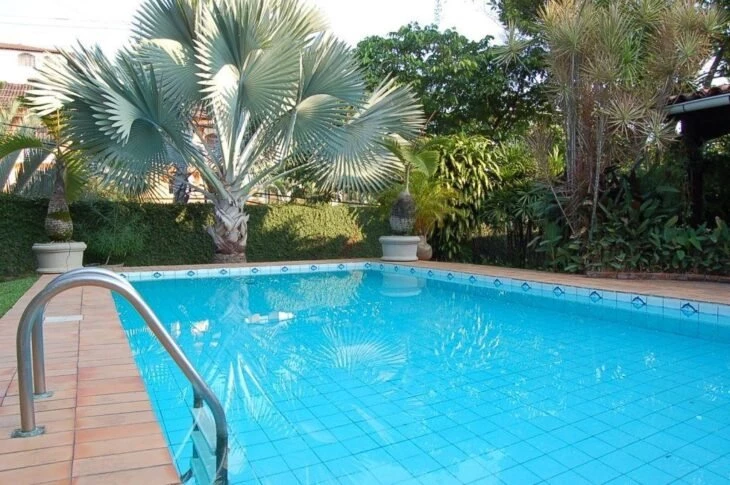
16. it blends with rustic and country houses
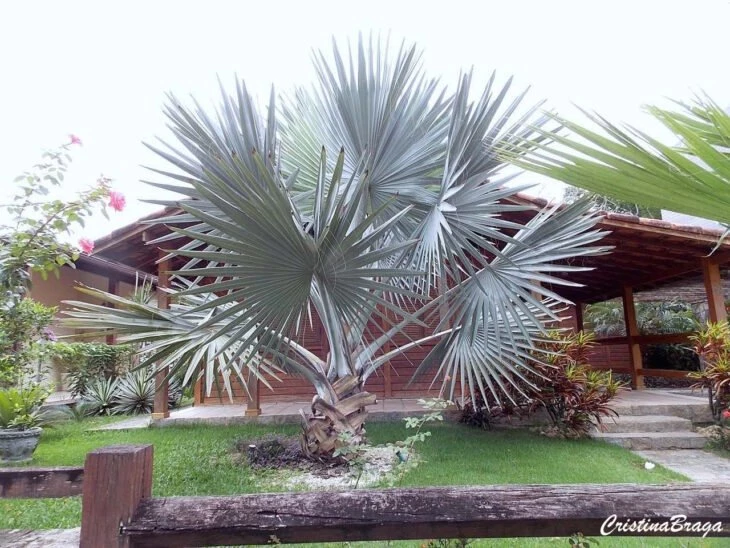
17. and also with more urban and modern houses
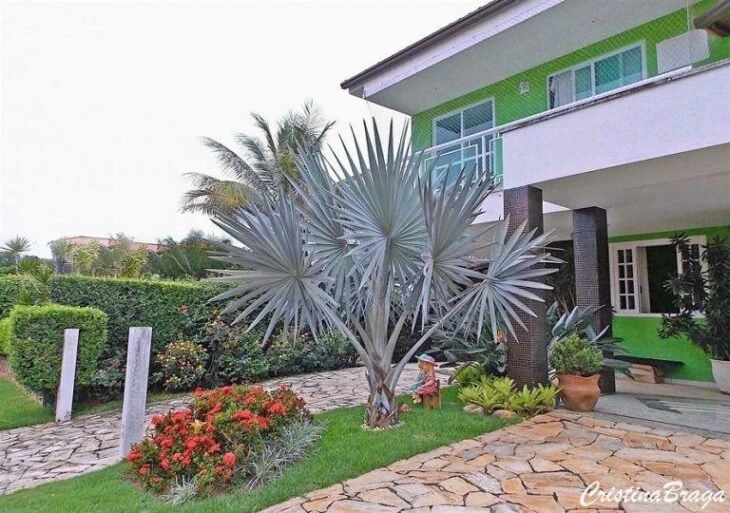
18. the large blue palm tree can make a useful shade
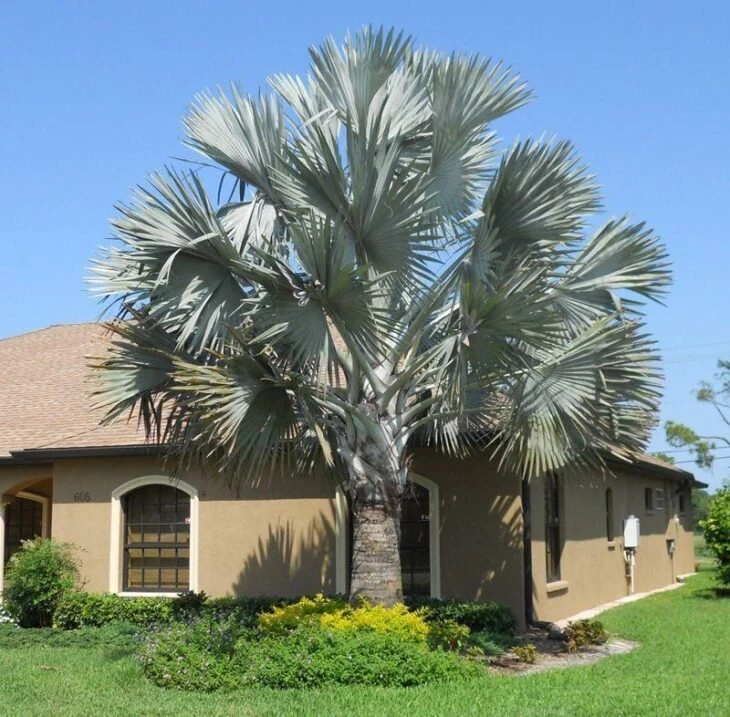
19. even more so when planted next to other plants!
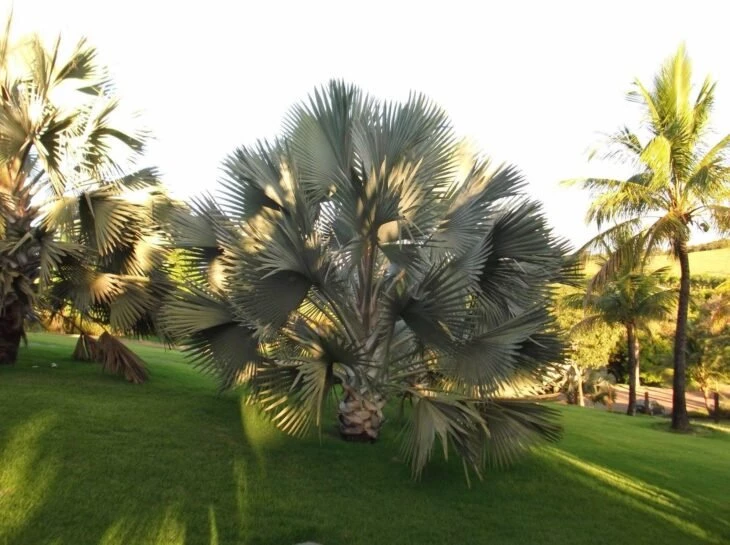
20. this plant usually has a very wide canopy
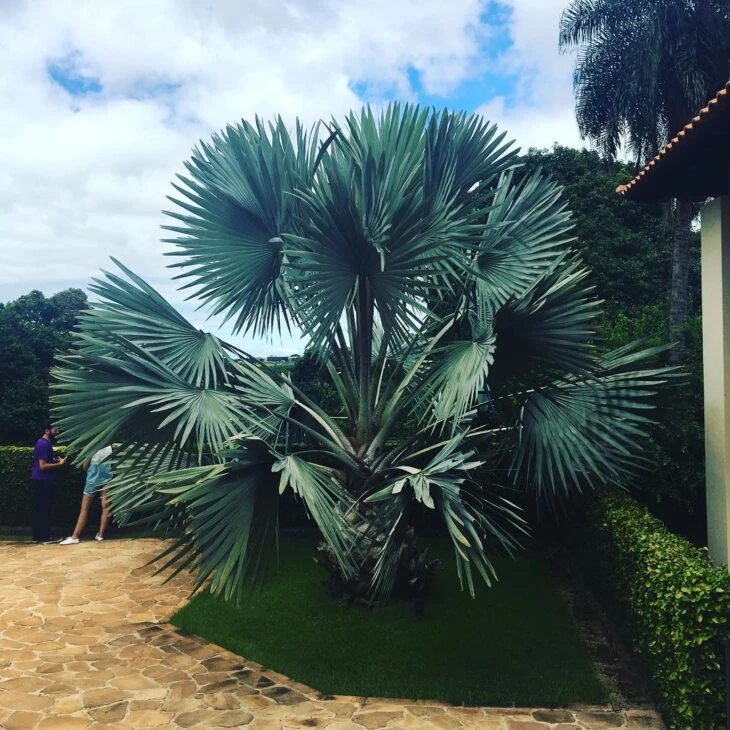
21. the blue palm tree was planted in the middle of an artificial pond in this garden
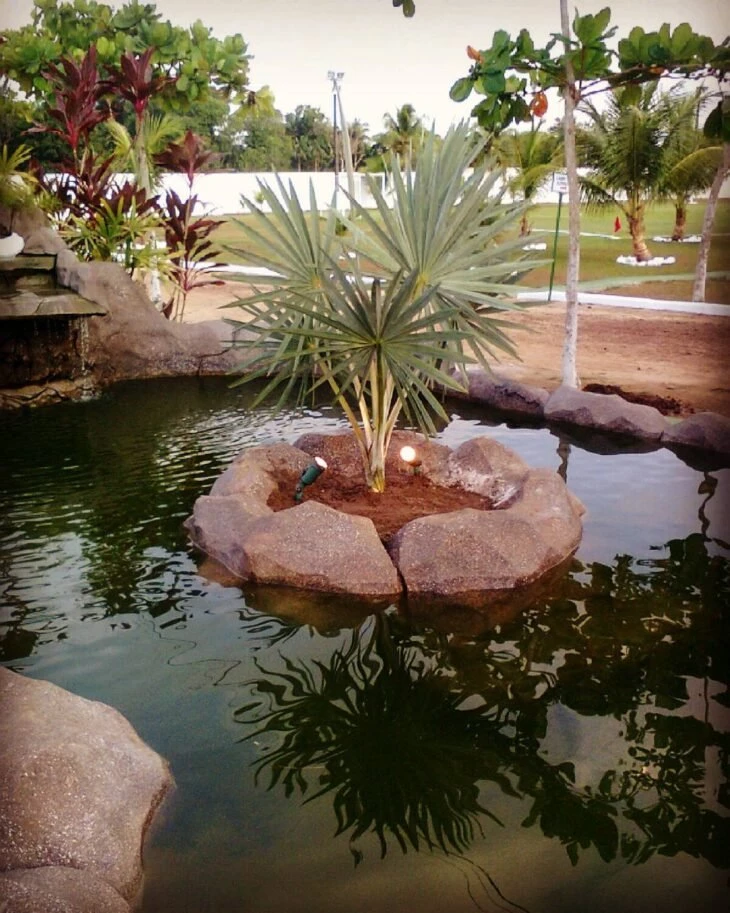
22. you can also plant the blue palm in a pot
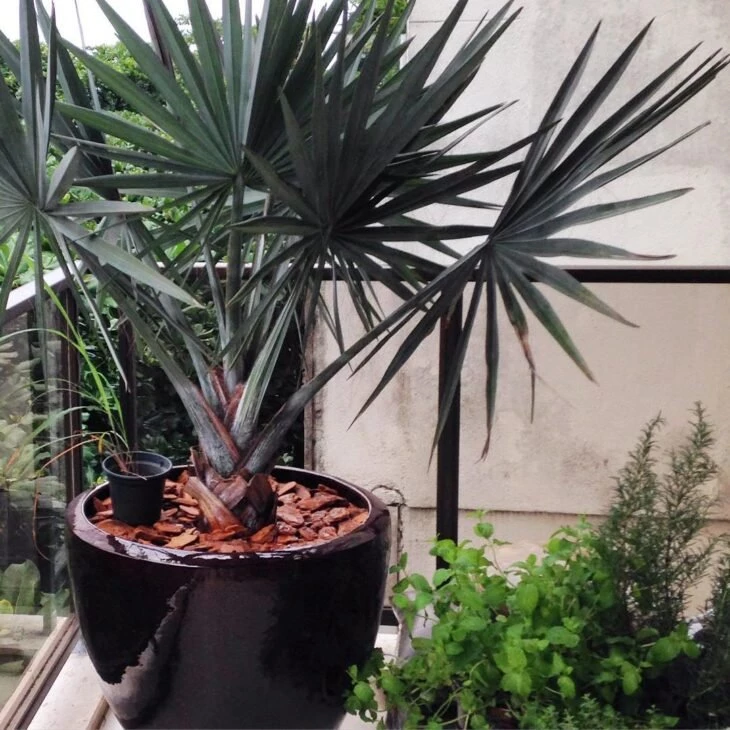
23 Why have only one blue palm tree when you can have two?
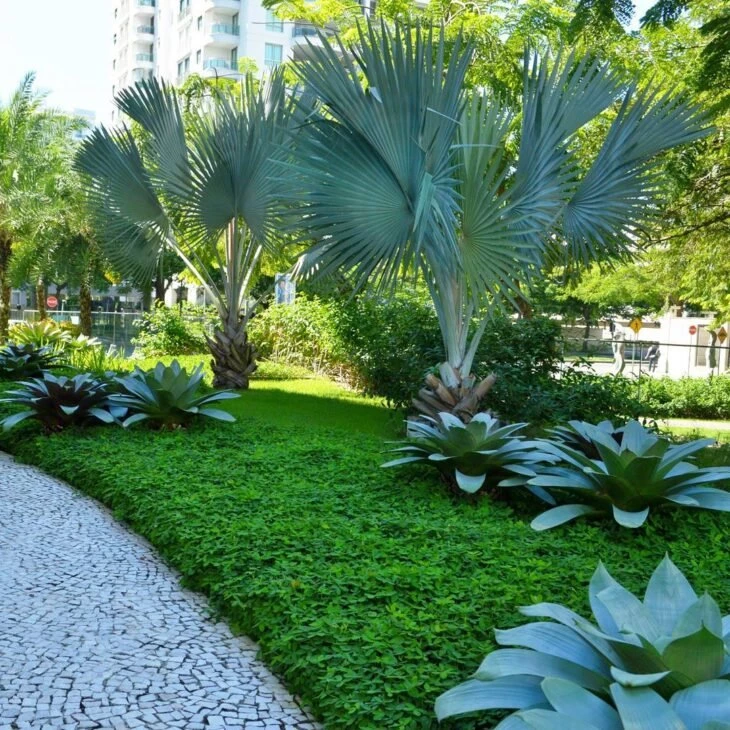
24. a small blue palm tree will fit in a flowerbed
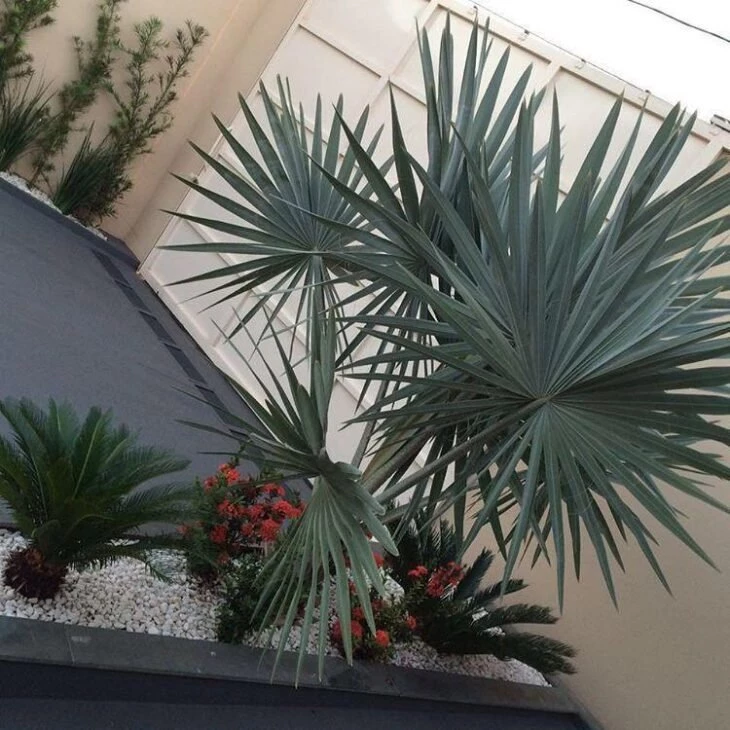
25. find a corner of your house for this charming plant!
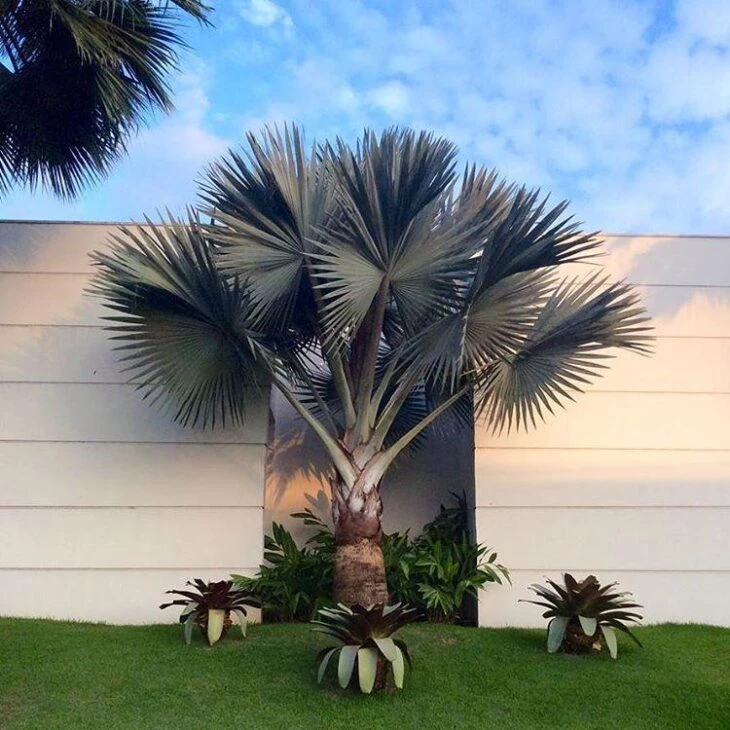
Blue palms are plants full of personality and easy to care for, so they are a great option for spacious gardens. Bet on this plant to create a beautiful and cozy garden in your home. And to make your outdoor space more beautiful, see also garden decoration ideas.


